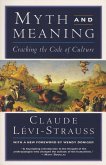Konstantin Megrelidze
Fundamental Problems of the Sociology of Thinking
Herausgeber: Brandist, Craig / Übersetzer: Skinner, Jeff
Konstantin Megrelidze
Fundamental Problems of the Sociology of Thinking
Herausgeber: Brandist, Craig / Übersetzer: Skinner, Jeff
- Broschiertes Buch
- Merkliste
- Auf die Merkliste
- Bewerten Bewerten
- Teilen
- Produkt teilen
- Produkterinnerung
- Produkterinnerung
Written at the height of the purges, but unpublished for decades, Megrelidze's text is arguably the most significant, erudite and wide-ranging work of Marxist philosophy written in the USSR at the time. Discussing the emergence and development of human consciousness from the origins of humanity to the rise of capitalism, Megrelidze discusses the major achievements of contemporary cognitive science, sociology, philosophy and linguistics in the light of the works of Marx and Engels that were being published at the time. Far from the rigidities of official 'diamat', the book illuminates the…mehr
Andere Kunden interessierten sich auch für
![Five Groundbreaking Moments in Heidegger's Thinking Five Groundbreaking Moments in Heidegger's Thinking]() Kenneth MalyFive Groundbreaking Moments in Heidegger's Thinking42,99 €
Kenneth MalyFive Groundbreaking Moments in Heidegger's Thinking42,99 €![The Cuban Revolution as Socialist Human Development The Cuban Revolution as Socialist Human Development]() Henry VeltmeyerThe Cuban Revolution as Socialist Human Development37,99 €
Henry VeltmeyerThe Cuban Revolution as Socialist Human Development37,99 €![Merleau-Ponty and Marxism Merleau-Ponty and Marxism]() Barry CooperMerleau-Ponty and Marxism49,99 €
Barry CooperMerleau-Ponty and Marxism49,99 €![The Popular Front Novel in Britain, 1934-1940 The Popular Front Novel in Britain, 1934-1940]() Elinor TaylorThe Popular Front Novel in Britain, 1934-194036,99 €
Elinor TaylorThe Popular Front Novel in Britain, 1934-194036,99 €![The Power of Ideas The Power of Ideas]() Isaiah BerlinThe Power of Ideas25,99 €
Isaiah BerlinThe Power of Ideas25,99 €![Myth and Meaning Myth and Meaning]() Claude Levi-StraussMyth and Meaning14,99 €
Claude Levi-StraussMyth and Meaning14,99 €![The Western Intellectual Tradition The Western Intellectual Tradition]() Jacob BronowskiThe Western Intellectual Tradition25,99 €
Jacob BronowskiThe Western Intellectual Tradition25,99 €-
-
-
Written at the height of the purges, but unpublished for decades, Megrelidze's text is arguably the most significant, erudite and wide-ranging work of Marxist philosophy written in the USSR at the time. Discussing the emergence and development of human consciousness from the origins of humanity to the rise of capitalism, Megrelidze discusses the major achievements of contemporary cognitive science, sociology, philosophy and linguistics in the light of the works of Marx and Engels that were being published at the time. Far from the rigidities of official 'diamat', the book illuminates the important debates in Soviet intellectual life that led to the works of figures such as Vygotsky and members of the 'Bakhtin Circle'.
Hinweis: Dieser Artikel kann nur an eine deutsche Lieferadresse ausgeliefert werden.
Hinweis: Dieser Artikel kann nur an eine deutsche Lieferadresse ausgeliefert werden.
Produktdetails
- Produktdetails
- Verlag: Haymarket Books
- Seitenzahl: 457
- Erscheinungstermin: 27. Oktober 2023
- Englisch
- Abmessung: 229mm x 152mm x 24mm
- Gewicht: 608g
- ISBN-13: 9781642599985
- ISBN-10: 1642599980
- Artikelnr.: 67411050
- Herstellerkennzeichnung
- Libri GmbH
- Europaallee 1
- 36244 Bad Hersfeld
- gpsr@libri.de
- Verlag: Haymarket Books
- Seitenzahl: 457
- Erscheinungstermin: 27. Oktober 2023
- Englisch
- Abmessung: 229mm x 152mm x 24mm
- Gewicht: 608g
- ISBN-13: 9781642599985
- ISBN-10: 1642599980
- Artikelnr.: 67411050
- Herstellerkennzeichnung
- Libri GmbH
- Europaallee 1
- 36244 Bad Hersfeld
- gpsr@libri.de
Konstantin Megrelidze, born in Georgia in 1900, was a major philosopher of the Soviet Union, whose works in the 1930s exercised a significant influence on the most innovative currents of later Soviet philosophy and psychology.
Preface: Konstantin Megrelidze and His Fundamental Problems of the Sociology of Thinking Acknowledgement From the Editor of the Russian Edition Fundamental Problems of the Sociology of Thinking Foreword General Exposition of the Question of Thinking Critique of Naturalistic Aims (§§
1–3) Part 1 1 Material Conditions and Social Preconditions Necessary for the Rise of the Human Level of Consciousness Labour Activity (§
4) Relations of Consumption and Production (§
5) Labour and the Product of Labour (§§
6, 7) The Product of Labour: Material Mediator of Social Relations (§
8) Labour and Society: Mutual Dependence (§
9) 2 From the Animal Level of Consciousness to Human Thinking The Biological Roots of Consciousness (§
10) Instincts and Reflex Responses (§§
11, 12) The Intellectual Activity of Animals (§
13) Shortcomings of Physiological Psychology and Classical Psychology (§
14) On Gestalt Psychology (§
15) Displays of Consciousness in Animals (§§
16,17) Distinguishing Characteristics of Human Consciousness (§
18) Interaction in the Animal World and Social Interaction (§
19) The Ideational Content of Consciousness (§
20) The Essential Particularities of Human Consciousness (§
21) Preliminary Results (§
22) 3 Material Culture and Thinking Labour Activity and Thinking (§§
23, 24) The Materialisation of the Idea in the Process of Labour Activity and the Acquisition of Objects of Ideological Content (§
25) Embodied Reason and Its Social Significance (§
26) The Qualitative Particularity of Social Relations (§
27) The Instrument of Labour – the Hand – Reason (§§
28, 29) The Cognitive Significance of Mediated Activity (§§
30, 31) The Tale of How ‘the Transcendental Is Made Immanent’ and ‘the Immanent Is Made Transcendental’ (§
32) p>4 The Problem of Perception in the Field of Marxist Philosophy The Perspective of Classical Psychology and Philosophy (§
33) Sense Is Not the Basic Psychological Atom (§
34) Sense Is Not a Symbol, but the Reflection of Reality (§§
35, 36) The Relational Dependence of Sense Data (§§
37–42) From the History of the Perception of Colours (§§
41, 42) The Marxist Perspective on the Question of Sensory Perception (§
43) 5 The Question of a Subject’s Self-Awareness Objects Are Perceived Primarily according to Their Social Importance (§
44) Self-Awareness Is Historically a Much Later Phenomenon Than the Perception of Objects of Activities (§
45) An Individual Subject’s Perception Was Historically Preceded by the Perception of the Collective Subject (§
46) Part 2 6 The Rise of the Idea Comprehension. The Concept (§
48) Concept and Notion (§
49) The Particular and the General (§
50) The Doctrine of Existence and Concept (§
51) The Doctrine of the Concept in the Empiricists and in Kant (§
52) The Place of the Concept in the System of Rationalist Ideas (§§
53, 54) Chance and Necessity (§
55) Three Maps of the World (§
56) Concept and Reality (§
57) The Self-Contained Structure (§
58) Self-Contained Structure and the Concrete Concept (§§
59, 60) On Mathematical Concepts (§§
61, 62) Generalisation and General Concepts (§
63) The Structure of Concepts (§§
64, 65) 7 The Sociogenesis of Ideas The Social Character of Individual Thinking (§
66) The Question of Parallelisms and Convergences (§
67) The Theory of Dispersion (§
68) The Theory of Borrowing (§
69) The Theory of the Identity of the Human Mind (§
70) The Geographical Theory (§
71) Shortcomings of the Existing Hypotheses (§
72) Questions of Parallelisms in the Marxist Interpretation (§
73) On the Origin of Flint and Steel (§
74) Parallelisms in the Realm of Calculating Time (§
75) Convergences in the Realm of Types of Thinking (§
76) Social Existence and Social Consciousness (§
77) The Individual and Society (§§
78, 79) The Social Genesis of Ideas (§
80) 8 The Process of the Social Circulation of Ideas The Propagation of Ideas (§
81) Social Circulation of the Products of Spiritual Creativity (§
82) On Popular Creativity (§
83) On Borrowing (§
84) Social Consciousness (§
85) The Composition and Content of Social Consciousness (§§
86, 87) 9 The Social Implementation of Ideas The Material Support of Ideas (§§
88, 89) Needs and Interests (§
90) The Structure of Social Interests (§
91) The Predominance of Fetishistic Relations (§
92) Surplus Product and Private Property (§
93) Possessive Alienation and Its Liquidation (§§
94, 95) The Concept of the Collective Social Field of History (§§
96, 97) Class Interests (§
98) Ideas Are Derivatives of Societal Interests (§§
99, 100) The Nature of Conformity to the Laws of History in an Antagonistic Society (§§
101, 102) The Social Implementation of Ideas (§§
103–106) Class Consciousness (§
107) Ideological Changes and Social Changes (§
108) 10 Testing Ideas in the Process of Their Implementation What Is an Experience (§
109) Testing Ideas by Experience, Practice (§§
110–113) Pragmatism and Marxism (§
114) A Thesis on Practice in Its General Philosophical Meaning (§
115) Concluding Observations (§
116) Supplement: Nikolai Iakovlevich Marr and the Philosophy of Marxism (1935) Glossary of Names References
1–3) Part 1 1 Material Conditions and Social Preconditions Necessary for the Rise of the Human Level of Consciousness Labour Activity (§
4) Relations of Consumption and Production (§
5) Labour and the Product of Labour (§§
6, 7) The Product of Labour: Material Mediator of Social Relations (§
8) Labour and Society: Mutual Dependence (§
9) 2 From the Animal Level of Consciousness to Human Thinking The Biological Roots of Consciousness (§
10) Instincts and Reflex Responses (§§
11, 12) The Intellectual Activity of Animals (§
13) Shortcomings of Physiological Psychology and Classical Psychology (§
14) On Gestalt Psychology (§
15) Displays of Consciousness in Animals (§§
16,17) Distinguishing Characteristics of Human Consciousness (§
18) Interaction in the Animal World and Social Interaction (§
19) The Ideational Content of Consciousness (§
20) The Essential Particularities of Human Consciousness (§
21) Preliminary Results (§
22) 3 Material Culture and Thinking Labour Activity and Thinking (§§
23, 24) The Materialisation of the Idea in the Process of Labour Activity and the Acquisition of Objects of Ideological Content (§
25) Embodied Reason and Its Social Significance (§
26) The Qualitative Particularity of Social Relations (§
27) The Instrument of Labour – the Hand – Reason (§§
28, 29) The Cognitive Significance of Mediated Activity (§§
30, 31) The Tale of How ‘the Transcendental Is Made Immanent’ and ‘the Immanent Is Made Transcendental’ (§
32) p>4 The Problem of Perception in the Field of Marxist Philosophy The Perspective of Classical Psychology and Philosophy (§
33) Sense Is Not the Basic Psychological Atom (§
34) Sense Is Not a Symbol, but the Reflection of Reality (§§
35, 36) The Relational Dependence of Sense Data (§§
37–42) From the History of the Perception of Colours (§§
41, 42) The Marxist Perspective on the Question of Sensory Perception (§
43) 5 The Question of a Subject’s Self-Awareness Objects Are Perceived Primarily according to Their Social Importance (§
44) Self-Awareness Is Historically a Much Later Phenomenon Than the Perception of Objects of Activities (§
45) An Individual Subject’s Perception Was Historically Preceded by the Perception of the Collective Subject (§
46) Part 2 6 The Rise of the Idea Comprehension. The Concept (§
48) Concept and Notion (§
49) The Particular and the General (§
50) The Doctrine of Existence and Concept (§
51) The Doctrine of the Concept in the Empiricists and in Kant (§
52) The Place of the Concept in the System of Rationalist Ideas (§§
53, 54) Chance and Necessity (§
55) Three Maps of the World (§
56) Concept and Reality (§
57) The Self-Contained Structure (§
58) Self-Contained Structure and the Concrete Concept (§§
59, 60) On Mathematical Concepts (§§
61, 62) Generalisation and General Concepts (§
63) The Structure of Concepts (§§
64, 65) 7 The Sociogenesis of Ideas The Social Character of Individual Thinking (§
66) The Question of Parallelisms and Convergences (§
67) The Theory of Dispersion (§
68) The Theory of Borrowing (§
69) The Theory of the Identity of the Human Mind (§
70) The Geographical Theory (§
71) Shortcomings of the Existing Hypotheses (§
72) Questions of Parallelisms in the Marxist Interpretation (§
73) On the Origin of Flint and Steel (§
74) Parallelisms in the Realm of Calculating Time (§
75) Convergences in the Realm of Types of Thinking (§
76) Social Existence and Social Consciousness (§
77) The Individual and Society (§§
78, 79) The Social Genesis of Ideas (§
80) 8 The Process of the Social Circulation of Ideas The Propagation of Ideas (§
81) Social Circulation of the Products of Spiritual Creativity (§
82) On Popular Creativity (§
83) On Borrowing (§
84) Social Consciousness (§
85) The Composition and Content of Social Consciousness (§§
86, 87) 9 The Social Implementation of Ideas The Material Support of Ideas (§§
88, 89) Needs and Interests (§
90) The Structure of Social Interests (§
91) The Predominance of Fetishistic Relations (§
92) Surplus Product and Private Property (§
93) Possessive Alienation and Its Liquidation (§§
94, 95) The Concept of the Collective Social Field of History (§§
96, 97) Class Interests (§
98) Ideas Are Derivatives of Societal Interests (§§
99, 100) The Nature of Conformity to the Laws of History in an Antagonistic Society (§§
101, 102) The Social Implementation of Ideas (§§
103–106) Class Consciousness (§
107) Ideological Changes and Social Changes (§
108) 10 Testing Ideas in the Process of Their Implementation What Is an Experience (§
109) Testing Ideas by Experience, Practice (§§
110–113) Pragmatism and Marxism (§
114) A Thesis on Practice in Its General Philosophical Meaning (§
115) Concluding Observations (§
116) Supplement: Nikolai Iakovlevich Marr and the Philosophy of Marxism (1935) Glossary of Names References
Preface: Konstantin Megrelidze and His Fundamental Problems of the Sociology of Thinking Acknowledgement From the Editor of the Russian Edition Fundamental Problems of the Sociology of Thinking Foreword General Exposition of the Question of Thinking Critique of Naturalistic Aims (§§
1–3) Part 1 1 Material Conditions and Social Preconditions Necessary for the Rise of the Human Level of Consciousness Labour Activity (§
4) Relations of Consumption and Production (§
5) Labour and the Product of Labour (§§
6, 7) The Product of Labour: Material Mediator of Social Relations (§
8) Labour and Society: Mutual Dependence (§
9) 2 From the Animal Level of Consciousness to Human Thinking The Biological Roots of Consciousness (§
10) Instincts and Reflex Responses (§§
11, 12) The Intellectual Activity of Animals (§
13) Shortcomings of Physiological Psychology and Classical Psychology (§
14) On Gestalt Psychology (§
15) Displays of Consciousness in Animals (§§
16,17) Distinguishing Characteristics of Human Consciousness (§
18) Interaction in the Animal World and Social Interaction (§
19) The Ideational Content of Consciousness (§
20) The Essential Particularities of Human Consciousness (§
21) Preliminary Results (§
22) 3 Material Culture and Thinking Labour Activity and Thinking (§§
23, 24) The Materialisation of the Idea in the Process of Labour Activity and the Acquisition of Objects of Ideological Content (§
25) Embodied Reason and Its Social Significance (§
26) The Qualitative Particularity of Social Relations (§
27) The Instrument of Labour – the Hand – Reason (§§
28, 29) The Cognitive Significance of Mediated Activity (§§
30, 31) The Tale of How ‘the Transcendental Is Made Immanent’ and ‘the Immanent Is Made Transcendental’ (§
32) p>4 The Problem of Perception in the Field of Marxist Philosophy The Perspective of Classical Psychology and Philosophy (§
33) Sense Is Not the Basic Psychological Atom (§
34) Sense Is Not a Symbol, but the Reflection of Reality (§§
35, 36) The Relational Dependence of Sense Data (§§
37–42) From the History of the Perception of Colours (§§
41, 42) The Marxist Perspective on the Question of Sensory Perception (§
43) 5 The Question of a Subject’s Self-Awareness Objects Are Perceived Primarily according to Their Social Importance (§
44) Self-Awareness Is Historically a Much Later Phenomenon Than the Perception of Objects of Activities (§
45) An Individual Subject’s Perception Was Historically Preceded by the Perception of the Collective Subject (§
46) Part 2 6 The Rise of the Idea Comprehension. The Concept (§
48) Concept and Notion (§
49) The Particular and the General (§
50) The Doctrine of Existence and Concept (§
51) The Doctrine of the Concept in the Empiricists and in Kant (§
52) The Place of the Concept in the System of Rationalist Ideas (§§
53, 54) Chance and Necessity (§
55) Three Maps of the World (§
56) Concept and Reality (§
57) The Self-Contained Structure (§
58) Self-Contained Structure and the Concrete Concept (§§
59, 60) On Mathematical Concepts (§§
61, 62) Generalisation and General Concepts (§
63) The Structure of Concepts (§§
64, 65) 7 The Sociogenesis of Ideas The Social Character of Individual Thinking (§
66) The Question of Parallelisms and Convergences (§
67) The Theory of Dispersion (§
68) The Theory of Borrowing (§
69) The Theory of the Identity of the Human Mind (§
70) The Geographical Theory (§
71) Shortcomings of the Existing Hypotheses (§
72) Questions of Parallelisms in the Marxist Interpretation (§
73) On the Origin of Flint and Steel (§
74) Parallelisms in the Realm of Calculating Time (§
75) Convergences in the Realm of Types of Thinking (§
76) Social Existence and Social Consciousness (§
77) The Individual and Society (§§
78, 79) The Social Genesis of Ideas (§
80) 8 The Process of the Social Circulation of Ideas The Propagation of Ideas (§
81) Social Circulation of the Products of Spiritual Creativity (§
82) On Popular Creativity (§
83) On Borrowing (§
84) Social Consciousness (§
85) The Composition and Content of Social Consciousness (§§
86, 87) 9 The Social Implementation of Ideas The Material Support of Ideas (§§
88, 89) Needs and Interests (§
90) The Structure of Social Interests (§
91) The Predominance of Fetishistic Relations (§
92) Surplus Product and Private Property (§
93) Possessive Alienation and Its Liquidation (§§
94, 95) The Concept of the Collective Social Field of History (§§
96, 97) Class Interests (§
98) Ideas Are Derivatives of Societal Interests (§§
99, 100) The Nature of Conformity to the Laws of History in an Antagonistic Society (§§
101, 102) The Social Implementation of Ideas (§§
103–106) Class Consciousness (§
107) Ideological Changes and Social Changes (§
108) 10 Testing Ideas in the Process of Their Implementation What Is an Experience (§
109) Testing Ideas by Experience, Practice (§§
110–113) Pragmatism and Marxism (§
114) A Thesis on Practice in Its General Philosophical Meaning (§
115) Concluding Observations (§
116) Supplement: Nikolai Iakovlevich Marr and the Philosophy of Marxism (1935) Glossary of Names References
1–3) Part 1 1 Material Conditions and Social Preconditions Necessary for the Rise of the Human Level of Consciousness Labour Activity (§
4) Relations of Consumption and Production (§
5) Labour and the Product of Labour (§§
6, 7) The Product of Labour: Material Mediator of Social Relations (§
8) Labour and Society: Mutual Dependence (§
9) 2 From the Animal Level of Consciousness to Human Thinking The Biological Roots of Consciousness (§
10) Instincts and Reflex Responses (§§
11, 12) The Intellectual Activity of Animals (§
13) Shortcomings of Physiological Psychology and Classical Psychology (§
14) On Gestalt Psychology (§
15) Displays of Consciousness in Animals (§§
16,17) Distinguishing Characteristics of Human Consciousness (§
18) Interaction in the Animal World and Social Interaction (§
19) The Ideational Content of Consciousness (§
20) The Essential Particularities of Human Consciousness (§
21) Preliminary Results (§
22) 3 Material Culture and Thinking Labour Activity and Thinking (§§
23, 24) The Materialisation of the Idea in the Process of Labour Activity and the Acquisition of Objects of Ideological Content (§
25) Embodied Reason and Its Social Significance (§
26) The Qualitative Particularity of Social Relations (§
27) The Instrument of Labour – the Hand – Reason (§§
28, 29) The Cognitive Significance of Mediated Activity (§§
30, 31) The Tale of How ‘the Transcendental Is Made Immanent’ and ‘the Immanent Is Made Transcendental’ (§
32) p>4 The Problem of Perception in the Field of Marxist Philosophy The Perspective of Classical Psychology and Philosophy (§
33) Sense Is Not the Basic Psychological Atom (§
34) Sense Is Not a Symbol, but the Reflection of Reality (§§
35, 36) The Relational Dependence of Sense Data (§§
37–42) From the History of the Perception of Colours (§§
41, 42) The Marxist Perspective on the Question of Sensory Perception (§
43) 5 The Question of a Subject’s Self-Awareness Objects Are Perceived Primarily according to Their Social Importance (§
44) Self-Awareness Is Historically a Much Later Phenomenon Than the Perception of Objects of Activities (§
45) An Individual Subject’s Perception Was Historically Preceded by the Perception of the Collective Subject (§
46) Part 2 6 The Rise of the Idea Comprehension. The Concept (§
48) Concept and Notion (§
49) The Particular and the General (§
50) The Doctrine of Existence and Concept (§
51) The Doctrine of the Concept in the Empiricists and in Kant (§
52) The Place of the Concept in the System of Rationalist Ideas (§§
53, 54) Chance and Necessity (§
55) Three Maps of the World (§
56) Concept and Reality (§
57) The Self-Contained Structure (§
58) Self-Contained Structure and the Concrete Concept (§§
59, 60) On Mathematical Concepts (§§
61, 62) Generalisation and General Concepts (§
63) The Structure of Concepts (§§
64, 65) 7 The Sociogenesis of Ideas The Social Character of Individual Thinking (§
66) The Question of Parallelisms and Convergences (§
67) The Theory of Dispersion (§
68) The Theory of Borrowing (§
69) The Theory of the Identity of the Human Mind (§
70) The Geographical Theory (§
71) Shortcomings of the Existing Hypotheses (§
72) Questions of Parallelisms in the Marxist Interpretation (§
73) On the Origin of Flint and Steel (§
74) Parallelisms in the Realm of Calculating Time (§
75) Convergences in the Realm of Types of Thinking (§
76) Social Existence and Social Consciousness (§
77) The Individual and Society (§§
78, 79) The Social Genesis of Ideas (§
80) 8 The Process of the Social Circulation of Ideas The Propagation of Ideas (§
81) Social Circulation of the Products of Spiritual Creativity (§
82) On Popular Creativity (§
83) On Borrowing (§
84) Social Consciousness (§
85) The Composition and Content of Social Consciousness (§§
86, 87) 9 The Social Implementation of Ideas The Material Support of Ideas (§§
88, 89) Needs and Interests (§
90) The Structure of Social Interests (§
91) The Predominance of Fetishistic Relations (§
92) Surplus Product and Private Property (§
93) Possessive Alienation and Its Liquidation (§§
94, 95) The Concept of the Collective Social Field of History (§§
96, 97) Class Interests (§
98) Ideas Are Derivatives of Societal Interests (§§
99, 100) The Nature of Conformity to the Laws of History in an Antagonistic Society (§§
101, 102) The Social Implementation of Ideas (§§
103–106) Class Consciousness (§
107) Ideological Changes and Social Changes (§
108) 10 Testing Ideas in the Process of Their Implementation What Is an Experience (§
109) Testing Ideas by Experience, Practice (§§
110–113) Pragmatism and Marxism (§
114) A Thesis on Practice in Its General Philosophical Meaning (§
115) Concluding Observations (§
116) Supplement: Nikolai Iakovlevich Marr and the Philosophy of Marxism (1935) Glossary of Names References








